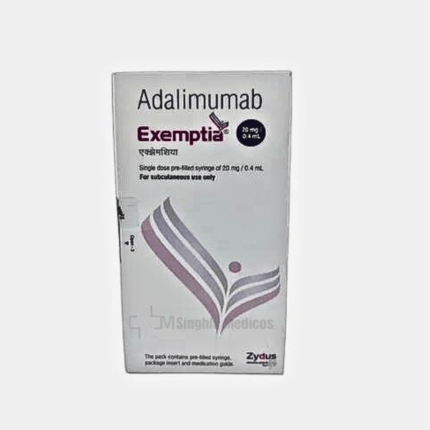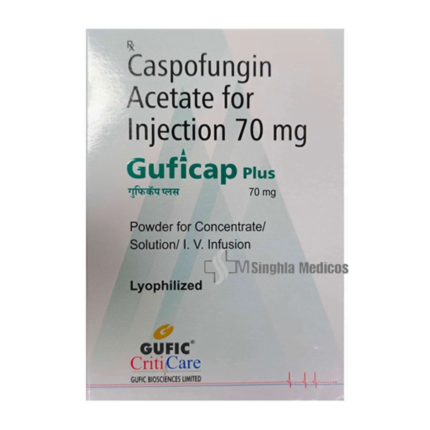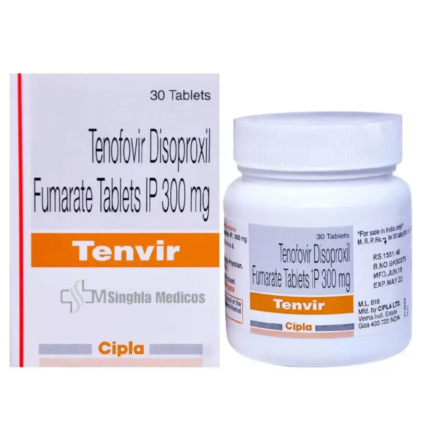

Pegasta Injection
₹3,550.00 Original price was: ₹3,550.00.₹2,200.00Current price is: ₹2,200.00.
![]() Prescription Required
Prescription Required
![]() Cold chain
Cold chain
Salt : Pegfilgrastim (6mg)
Manufacturer : Intas Pharmaceuticals Ltd
Packing : 0.6 ml in 1 prefilled syringe
Prepaid Only, Non-Returnable
PRODUCT INTRODUCTION
Pegasta Injection is used to prevent infections after chemotherapy. It is a growth factor that stimulates bone marrow to produce white blood cells. These cells protect the body against infections.
Pegasta Injection is given as an injection by a qualified medical professional. You should continue to take as long as your doctor advises for it. The duration of treatment varies according to your need and response to treatment. You might be asked for regular tests done to check the number of blood cells in your blood and your bone density level while you are taking this medicine.
The most common side effects of this medicine include bone pain, joint pain, headache, nausea, and muscle pain. Other than this, pain or redness at the site of injection is common. But, inform your doctor if you notice a lump, swelling, or bruising that does not go away. It might not prevent you from all kinds of infection, hence inform your doctor if you notice fever, chills, shortness of breath, sore throat, and swelling around the face or neck.
Many other medicines can affect, or be affected by, this medicine so let your healthcare team know all medications you are using. This medicine is not recommended during pregnancy or while breastfeeding. The use of effective contraception by both males and females during treatment is important to avoid pregnancy. You must avoid driving or attention-seeking activity if you experience dizziness after taking this medicine.
BENEFITS OF PEGASTA INJECTION
In Prevention of Infections after chemotherapy
SIDE EFFECTS OF PEGASTA INJECTION
Common side effects of Pegasta
- Bone pain
- Joint pain
- Headache
- Nausea
- Low blood platelets
- Muscle pain
- Back pain
- Pain in extremities
- Injection site pain
References
-
Masters SB. Agents Used in Anemias; Hematopoetic Growth Factors. In: Katzung BG, Masters SB, Trevor AJ, editors. Basic and Clinical Pharmacology. 11th ed. New Delhi, India: Tata McGraw Hill Education Private Limited; 2009. p. 581.
-
Briggs GG, Freeman RK, editors. A Reference Guide to Fetal and Neonatal Risk: Drugs in Pregnancy and Lactation. 10th ed. Philadelphia, PA: Wolters Kluwer Health; 2015. pp. 1074-75.
Disclaimer
Singhla Medicos’s primary intention is to ensure that its consumers get information that is reviewed by experts, accurate and trustworthy. The information and contents of this website are for informational purposes only. They are not intended to be a substitute for professional medical advice, diagnosis, or treatment. Please seek the advice of your doctor and discuss all your queries related to any disease or medicine. Do not disregard professional medical advice or delay in seeking it because of something you have read on Singhla Medicos. Our mission is to support, not replace, the doctor-patient relationship.
Shipping Policy
We ship across India. Note – this is subject to change as per Company Wishes. Packages will be shipped in 24 working hours. we are closed on Sundays and will reach you in the next 2-4 days post shipping. We give the estimated time of delivery on the shipping page. However, these are indicative and depend on our shipping partner.
Delivery
The delivery times are subject to location, distance, and our logistics partners. We are not liable for any delays in delivery by the courier company/postal authorities but will help you track down a package through our partner courier services.
Your purchases may reach you from various locations in more than one package. But rest assured, you will be charged one delivery fee for the entire order. As soon as your package ships, we will email you your package tracking information.
We are bound in coverage by their reach even though we use some of India’s largest logistics companies for shipping. In case your address is in a location not served by them we would contact you to find an alternative solution to make your products reach you.












Reviews
There are no reviews yet.